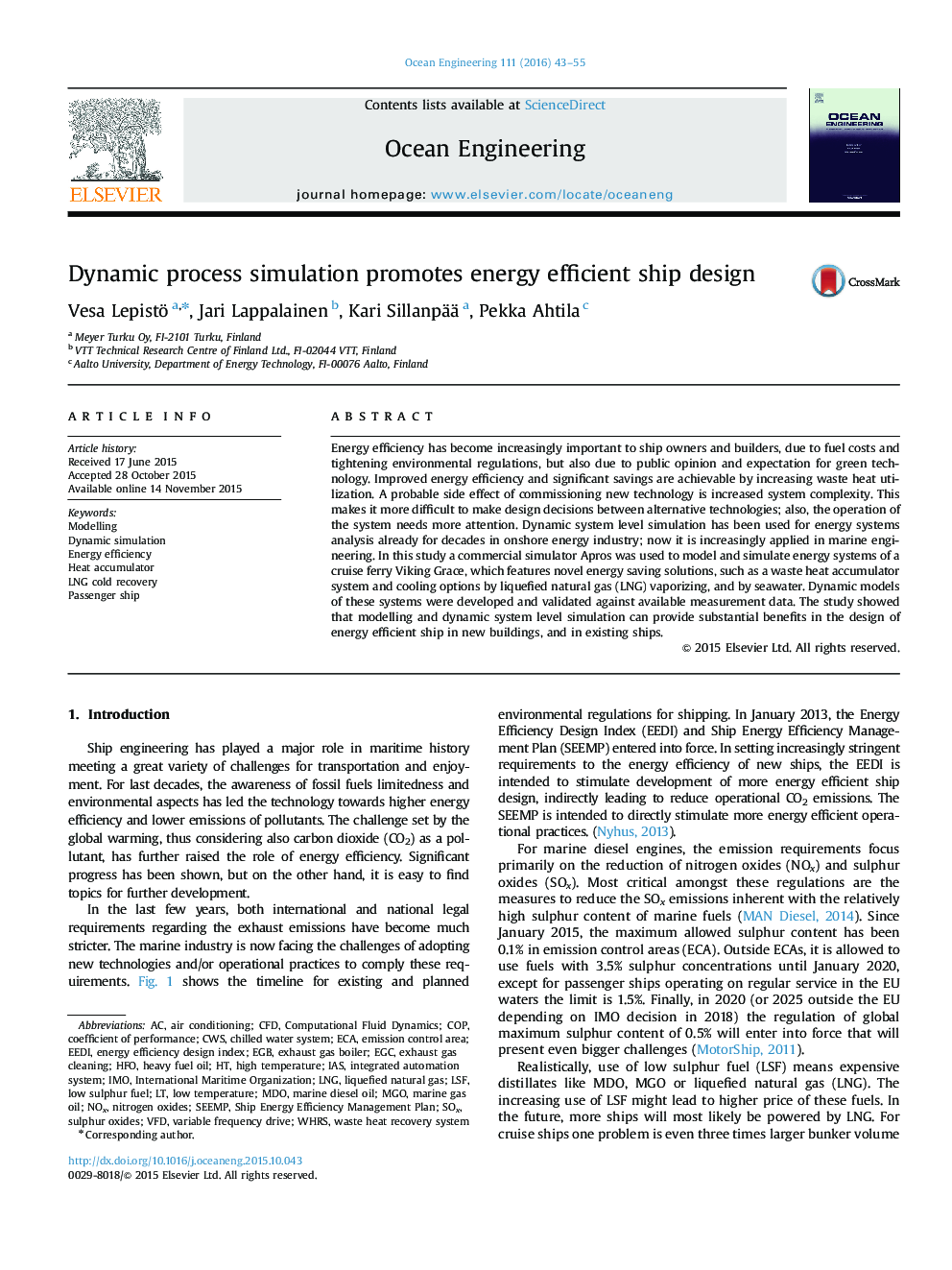| Article ID | Journal | Published Year | Pages | File Type |
|---|---|---|---|---|
| 8064984 | Ocean Engineering | 2016 | 13 Pages |
Abstract
Energy efficiency has become increasingly important to ship owners and builders, due to fuel costs and tightening environmental regulations, but also due to public opinion and expectation for green technology. Improved energy efficiency and significant savings are achievable by increasing waste heat utilization. A probable side effect of commissioning new technology is increased system complexity. This makes it more difficult to make design decisions between alternative technologies; also, the operation of the system needs more attention. Dynamic system level simulation has been used for energy systems analysis already for decades in onshore energy industry; now it is increasingly applied in marine engineering. In this study a commercial simulator Apros was used to model and simulate energy systems of a cruise ferry Viking Grace, which features novel energy saving solutions, such as a waste heat accumulator system and cooling options by liquefied natural gas (LNG) vaporizing, and by seawater. Dynamic models of these systems were developed and validated against available measurement data. The study showed that modelling and dynamic system level simulation can provide substantial benefits in the design of energy efficient ship in new buildings, and in existing ships.
Keywords
IMOiAsEGCCWSHFOLSFLNGMDOCOPECAEGBVFDEEDISEEMPExhaust gas cleaningMarine gas oilNOxSOxNitrogen oxidesSulphur oxidesEnergy efficiencyAir conditioningVariable frequency driveHigh temperatureLow temperatureCFDComputational fluid dynamicsMarine diesel oilInternational Maritime OrganizationHeavy fuel oilChilled water systemWaste heat recovery systemEnergy Efficiency Design IndexDynamic simulationcoefficient of performanceModellingEmission Control AreaMgOPassenger shipLiquefied natural gas
Related Topics
Physical Sciences and Engineering
Engineering
Ocean Engineering
Authors
Vesa Lepistö, Jari Lappalainen, Kari Sillanpää, Pekka Ahtila,
